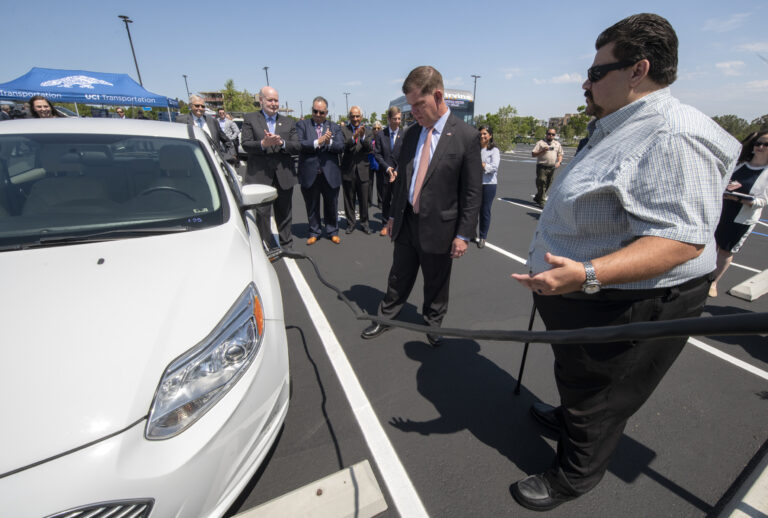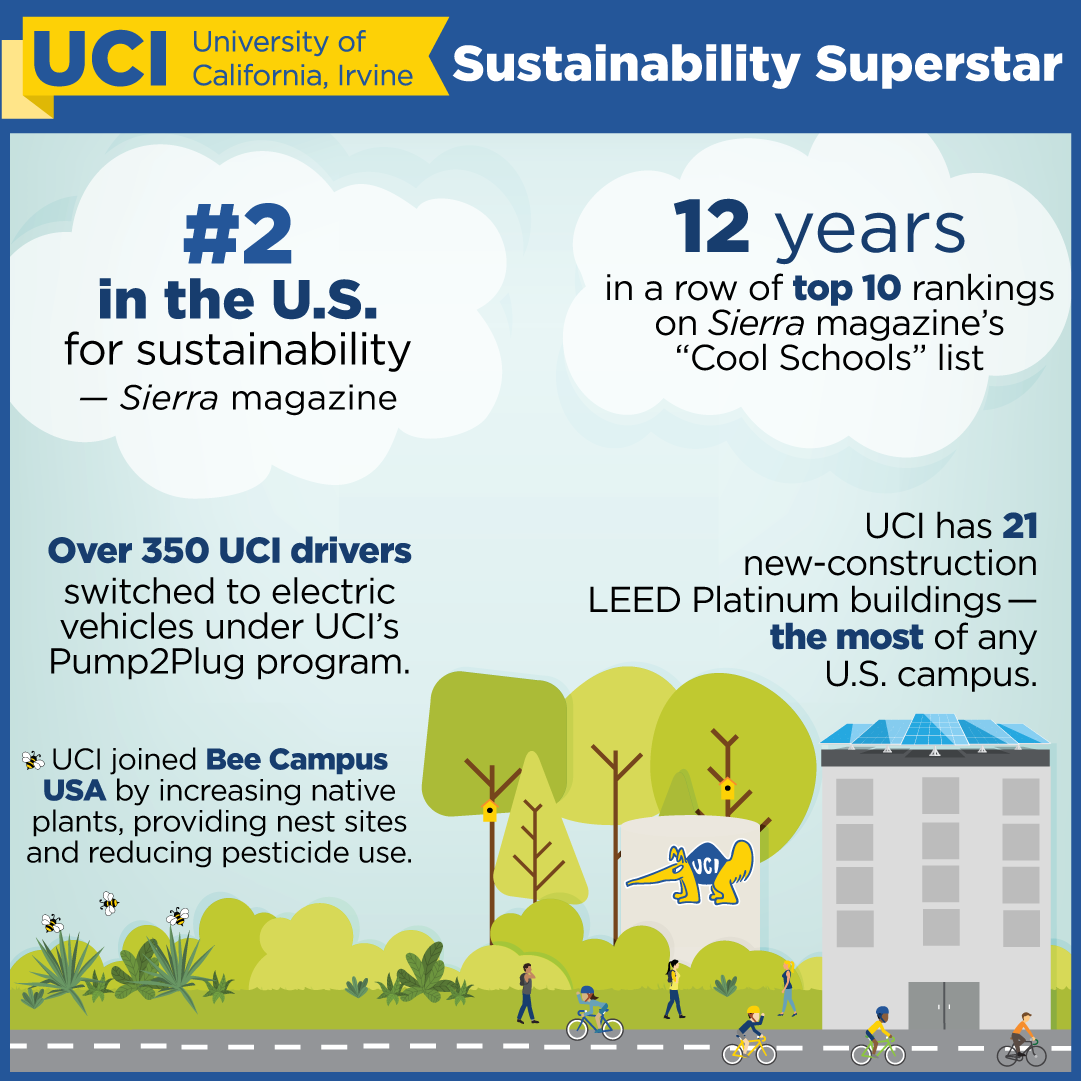UCI is No. 2 in Sierra Magazine’s 2021 ‘Cool Schools’ Ranking of Sustainability Leaders

Sep. 9, 2021 - The green streak continues! Sierra magazine has named the University of California, Irvine No. 2 overall in its annual “Cool Schools” ranking of sustainability leaders among U.S. and Canadian universities and colleges, marking the 12th time in a row that UCI has placed in the top 10 of the widely acclaimed list.
UCI’s history of environmental stewardship dates back to the Nobel Prize-winning research by chemistry professor F. Sherwood Rowland into the depletion of the ozone layer almost five decades ago. This work led to the development and growth of UCI’s campus culture of eco-friendly practices, groundbreaking sustainability research and remarkable green accomplishments that has put the university at the forefront of American higher education. For this, UCI has twice won California’s top environmental honor, the Governor’s Environmental and Economic Leadership Award, in 2008 and 2013.
“I am so pleased that once again Sierra magazine has recognized UCI as the nation’s No. 2 ‘Cool School’ for our leadership and achievements in this important area,” said Chancellor Howard Gillman. “Across our campus, in virtually every academic discipline, our students, staff and faculty are actively pursuing the effective stewardship of the world we all live in.”

UCI topped the “Cool Schools” list in 2014, 2015, 2018 and 2020 on the strength of its curricula, research, campus operations and public engagement.
“The Sierra ‘Cool Schools’ rankings are respected as the most rigorous measure of an institution’s commitment to environmental and energy research, climate solutions, and the full array of environmental stewardship metrics,” said Wendell Brase, associate chancellor for sustainability at UCI. “But a high Sierraranking is simply not possible without the engagement of the entire faculty, student body and campus leadership. UCI is also dedicated to researching, producing and demonstrating tangible energy decarbonization technologies that are scalable and extensible across California and globally.”
Advancing green transportation
UCI is one of the top U.S. universities for advancing sustainable transportation research and practices.
On July 9, U.S. Secretary of Labor Marty Walsh came to UCI to meet with Gillman, other campus leaders and University of California dignitaries to learn more about the workforce implications of developing a more sustainable transportation infrastructure, including a nationwide network of electric vehicle charging stations, a key component of proposed legislation currently being negotiated in Congress.
Walsh was shown an array of UCI sustainable transportation assets, including electric vehicle charging facilities in parking lot 70; a fully electric passenger bus, part of the university’s zero-emissions public transportation fleet; a pickup truck equipped with a mobile rapid-charging system; and a collection of electric vehicles, including a zero-emissions cargo/work truck that operates on campus.
Scott Samuelsen, founding director of UCI’s Advanced Power and Energy Program, and Jack Brouwer, current APEP director and head of the campus’s National Fuel Cell Research Center, discussed a variety of UCI research projects with the goal of decarbonizing transportation in the U.S.
Previously, UCI was recognized by the 2020 Green Fleet Awards as having the 10th-greenest fleet in the nation, making it the highest-ranked university on the list. It also won the Best University or College Fleet Merit Award for its reduction in fuel consumption and use of electrified student transportation. In 2018, UCI became the first university in the country to abandon its traditional, diesel fuel-powered buses and shift to completely sustainable transportation with a fleet of 20 all-electric shuttle buses and a hydrogen fuel cell bus that transport students throughout campus.
Among the university’s other sustainability achievements:
- UCI has constructed 21 LEED Platinum-certified buildings, the most for new construction of any U.S. university.
- UCI created a successful Pump2Plug program in which 350-plus participants have switched to electric vehicles, and the campus boasts almost 200 EV charging stations.
- In February, UCI became part of Bee Campus USA, thanks to a fully student-led effort. And in the spring, UCI students also established an Environmental Justice Collective, creating a virtual space to discuss ways of aligning sustainability and social justice issues.
- Throughout the COVID-19 pandemic, UCI managed to maintain a waste diversion rate of 80 percent (the same as before the pandemic), thanks to education initiatives and advanced sorting measures.
The official publication of the Sierra Club, Sierra magazine initiated the college sustainability rankings in 2007 because – as the biggest purchasers and employers in many communities – universities can create demand for green services and products and lead by example.
– Tom Vasich / UCI
